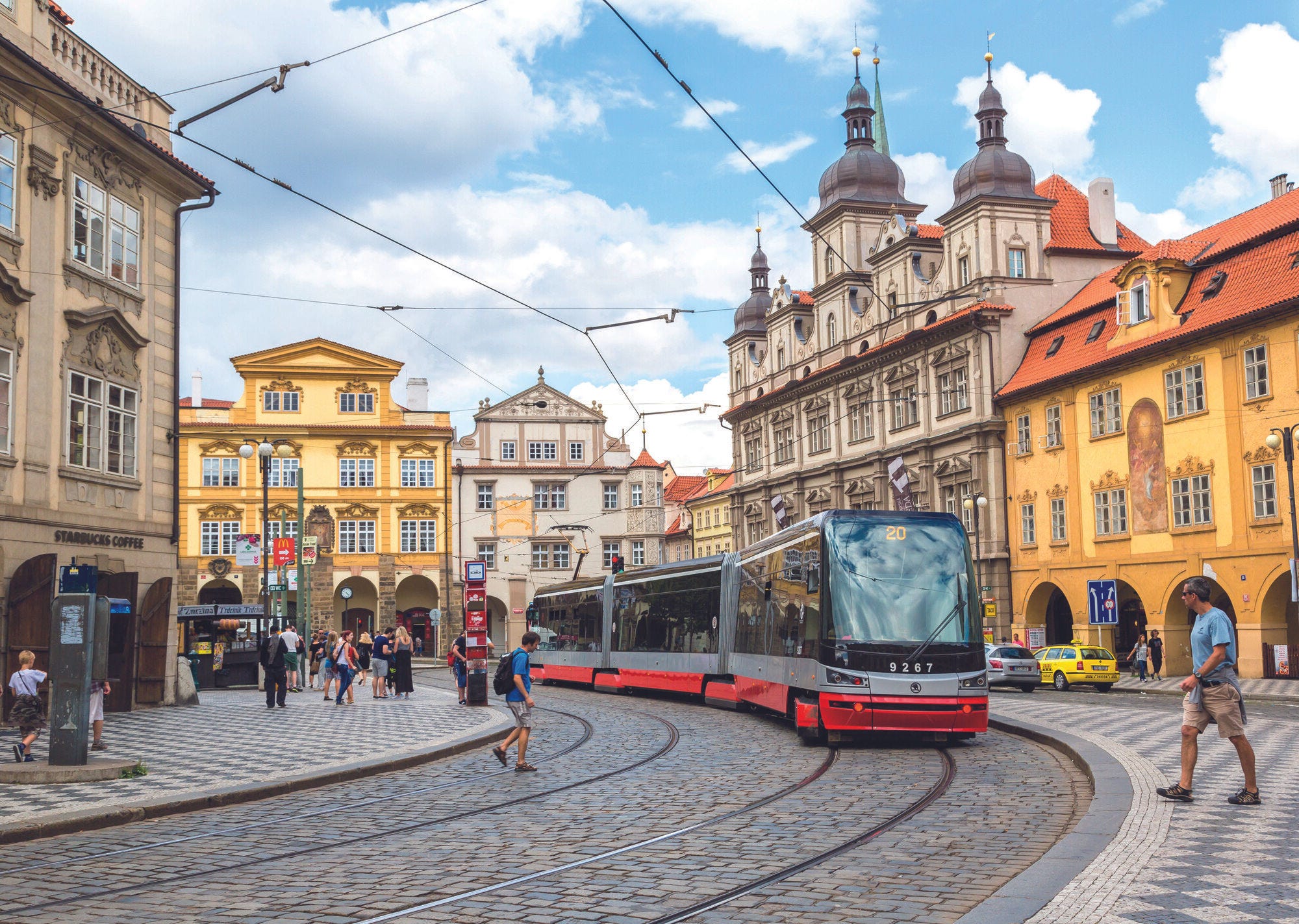The Czech Republic has made progress in decoupling economic growth from freshwater abstractions, energy consumption, GHG and other air pollutants emissions. However, its strong industrial base and reliance on coal place the country among the most energy- and carbon-intensive in the OECD and air pollution is a serious health concern. Progressing towards sustainable development will require strengthening political commitment to a low-carbon economy and implementing more cost-effective environmental policies.
This is the third Environmental Performance Review of the Czech Republic. It evaluates progress towards sustainable development and green growth, with special features on waste, materials management and circular economy and sustainable urban development.
OECD Environmental Performance Reviews: Czech Republic 2018

Abstract
Executive Summary
Progress on Sustainable Development Goals but continued high carbon intensity of the economy
The Czech Republic has a small, very open economy that has grown faster than the OECD average for much of the 2000s. The country has made progress in decoupling environmental pressures from economic activity. The 2017 Czech Republic 2030 strategy defines priorities for implementing the 2030 Agenda for Sustainable Development. Relative to the OECD average, the country performs well on Sustainable Development Goals related to poverty, water and biodiversity. However, its economy remains among the most energy- and carbon-intensive in the OECD due to the strong industrial base and reliance on coal. The population is also exposed to high levels of air pollution.
Strengthening political commitment to a low-carbon economy and ensuring that the long‑term targets of the State Energy Policy are compatible with the Paris Agreement objectives are key priorities. Nuclear power has been gradually replacing coal in the electricity mix. The share of renewables also grew significantly, although it remains lower than the OECD average. The Czech Republic overshot its 2008-12 Kyoto target of reducing greenhouse gas emissions and seems on track to reach its 2020 objectives. However, achieving mid- and long-term targets will require further progress in energy savings in a context of significantly increasing emissions from road transport.
Enhancing inter-municipal co-operation to deliver efficient environmental services
Accession to the European Union in 2004 helped strengthen the environmental agenda but central and subnational authorities have not been proactive on environmental policy. Although administrative capacity is generally sufficient, high turnover of environment ministers and staff has caused implementation gaps. Czech municipalities and regions are among the smallest in the OECD, which contributes to governance fragmentation. Enhancing their collaboration is a necessary step to increase their efficiency in providing environmental services.
Since the 2005 OECD Environmental Performance Review, progress has been made in strengthening environmental impact assessment, regulatory impact assessment and strategic environmental assessment. Still, the Czech Republic should expand the use of cost-benefit analysis of environmental policies and increase ex post evaluation of their implementation. Public participation in environmental decision making and access to information have improved. Despite progress in mapping and remediating contaminated sites, a large number of them continue to represent a hazard to the environment and human health. Exemptions from remediation costs granted to polluters complying with environmental permits should be removed, in line with OECD best practices.
The pathway to green growth requires increasing carbon prices
Ensuring coherence between environment and energy policies remains a challenge. Pricing carbon will help in tackling climate change and air pollution cost-effectively. It could contribute to improving energy affordability. The government has been considering a carbon tax for years but has never adopted one. Although taxes on natural gas, solid fuels and electricity were introduced, rates were set at relatively low levels and were not adjusted for inflation. Several tax exemptions reduce incentives to save energy or to switch to cleaner fuels. To promote investment in low-carbon technology, the Czech Republic should also increase more rapidly the share of permits auctioned in the power sector under the EU Emissions Trading System and set a stable support framework for renewable development.
Lower and differentiated taxes on road fuels have boosted diesel consumption. While the average age of cars is about 15 years, tightening environmental criteria of vehicle taxes would promote fleet renewal towards cleaner vehicles. Extending distance-based charging would help address air pollution and congestion and also fund transport infrastructure, which is poor. EU cohesion policy has been a major source of funding for transport and environmental infrastructure. It helped increase the connection rate for public wastewater treatment plants in line with the OECD average. Making the most of EU funds will require improved strategic planning and procurement practices.
Progress in waste recovery but continued reliance on landfilling
Landfilling, though reduced, remains the most common waste treatment method. Monitoring of progress is hampered by the existence of two competing information systems that produce divergent data. The Czech Republic has a fairly complete policy framework for waste and materials and a mature extended producer responsibility system for packaging waste, and has long been active in the field of cleaner production. It has progressed with recovery and recycling and with separate collection of municipal waste. However, it has not yet succeeded in exploiting the raw material potential of its waste. Improvement has been marginal regarding economic analysis of waste management or waste prevention in industry and upstream in the value chain (design phase).
Essential steps need to be taken to follow the waste hierarchy, divert waste from landfilling, invest in recycling infrastructure, develop markets for secondary raw materials and improve the cost-effectiveness and transparency of the extended producer responsibility system for waste electrical and electronic equipment. Current plans and programmes on waste management and prevention, secondary raw materials, eco-innovation and cleaner production should help in moving forward. Improving information on waste and materials is crucial, as is speeding up adoption of the new Waste Act, which has been pending for two years.
Compact-city policies can contribute to sustainable development
The Czech Republic is among the least urbanised countries in the OECD. In recent decades, it has experienced a process of suburbanisation. Housing affordability has become a major concern due, in part, to a lengthy building approval process. While Czech cities continue investing in public transport, improvements are counterbalanced by increased car use, exacerbating air pollution. Investment in soft transport mode infrastructure is pending. Territorial fragmentation and a highly centralised public finance system limit efficient co-ordination of investment in metropolitan areas.
Measures that could help make urbanisation more sustainable include strengthening the urban governance system; adopting a compact, co-ordinated, connected development model with a holistic approach to urban development; reviewing the land use planning system; promoting the development of brownfield sites; improving the use of environmental fees and taxes at city level to tackle air pollution and congestion; and continuing to promote Local Agenda 21.
In the same series
Related publications
-
 21 November 2024
21 November 2024 -
30 July 2024
-
 Country note10 July 2024
Country note10 July 2024










